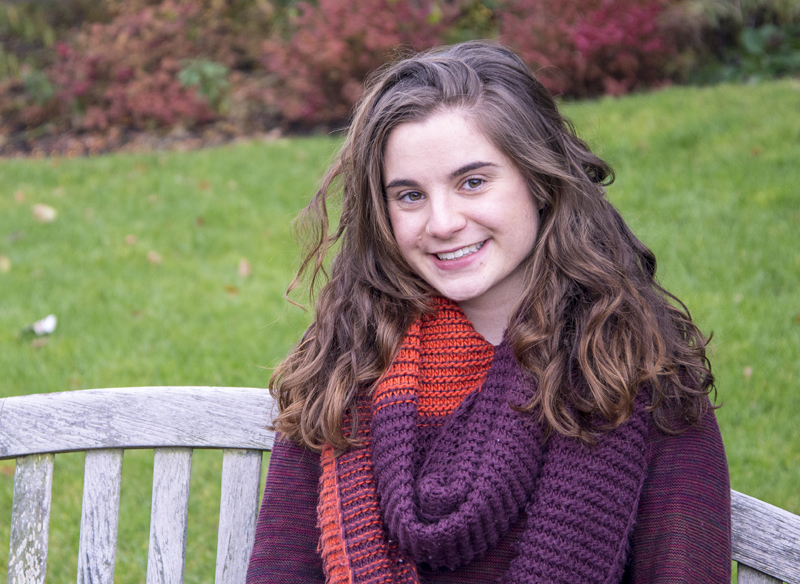Harpur student spotlight: Christina O’Hara
Educational policy is in the future of philosophy/PPL double major

If we are so quick to change our technology every few years, why haven’t we changed the way our education is viewed and constructed?
Christina O’Hara wants to encourage that change.
“I think the way we currently have education, it is missing some key components. It should be this philanthropic educational system instead of ‘here’s a test, good luck,’” O’Hara said. “We are constantly shaping the iPhone in bad ways, like how can we make it more addictive? But our educational system that we could shape in a way that could better benefit us, we don’t.”
O’Hara is a junior at Binghamton University double majoring in philosophy and philosophy, politics and law (PPL) on a pre-law track.
She intends to go into educational policy, and this vision stems from her own experiences and observations while attending Bronx High School of Science.
“I went to a really good high school, good in terms of academics, but I was miserable there,” O’Hara said. “The teachers put out this perfectionist standard that you had to achieve, but there weren’t good mental-health resources for students suffering from stress.”
O’Hara believes mental health needs to be a part of the daily educational curriculum.
In high school she saw some students turn to unhealthy coping strategies, such as overeating, in response to stress that could have been avoided.
“How many people are doing that every day instead of dealing with their issues, instead of realizing there are healthy mechanisms we can be enforcing from a young age instead of when they’re 25 and have to completely self-correct it?” O’Hara asked.
By going into educational policy, O’Hara hopes to shed light on this unawareness of mental well-being.
“There’s this whole aspect of education that I feel only gets brought up in college within psychology, sociology and philosophy,” O’Hara said. “If I was learning these things when I was 14 about how I interact with the world, it would have made me much happier.”
Self-awareness and self-love are some of the staples she wants to bring to contemporary education.
“It’s the little things we could do in the curriculum that could completely re-orient how we see ourselves,” O’Hara said. “It seems fluffy, self-love, but it’s actually behind why you push yourself. Self-love is lacking in our society because it profits off our unhappiness. To love yourself wholly is the most rebellious thing you can do in a society that wants you to be perfect.”
The quest for perfection is one of the biggest flaws that O’Hara sees within the educational system today.
“Perfection is not only shallow and unattainable, but it’s inherently uninteresting,” O’Hara said.
O’Hara’s dreams of implementing change within educational policies are motivated and encouraged by the various extracurricular activities she commits to.
She is a member of the debate team, a group fitness instructor, a part of the High Hopes organization (a suicide prevention organization) and she tutors non-profit SAT prep in the summers.
“I get different things from each hobby that I have,” O’Hara said. “Debate teaches me how to get my opinion across, whereas organizations like High Hopes and my group fitness class show me how to be receptive to others opinions. Both of those things are key going into policy.”
O’Hara admitted that it can be challenging to balance her commitments, but she derives different perspectives by doing so, and that is something that motivates her to continue trying more things.
Her summer job at the tutoring center back home in Queens is what familiarized her with the role of a teacher and what it would mean to change the meaning of that role for the better, as well as the student-teacher relationships.
“In my SAT class, one of the girls I taught two years ago was not confident at first,” O’Hara said. “The SAT was demoralizing her, she didn’t think she could go to a good college and she was having trouble competing with her peers.”
O’Hara worked carefully with this student over the years, kept in contact with her, and always gave her constructive criticism and encouragement.
“Over the summer I saw her again and she showed me the schools she got into,” O’Hara said. “I was like, ‘I knew you could do it!’ Seeing my encouragement have that impact I think is my biggest accomplishment. That is what education should be about.”

